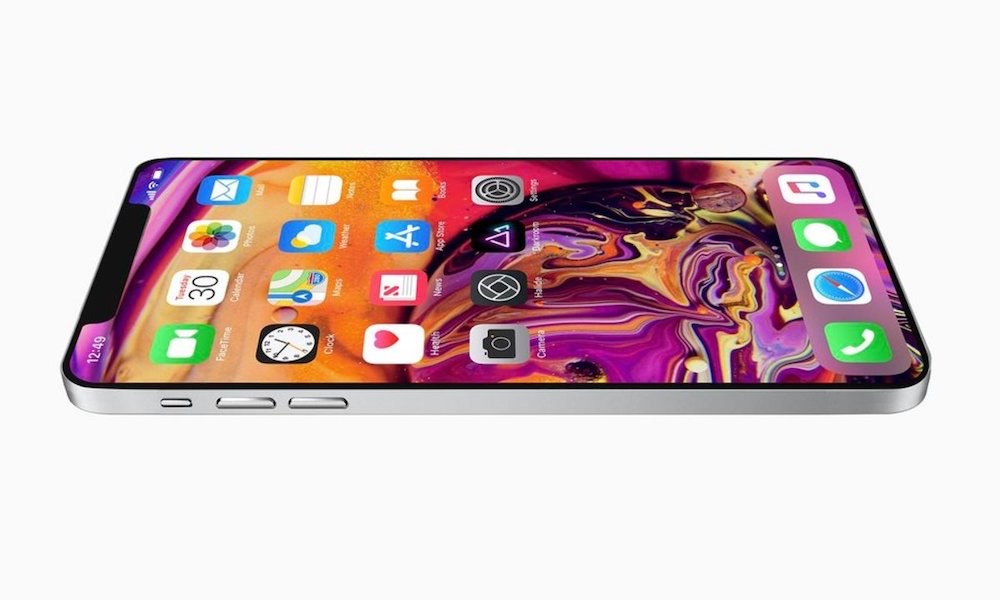Apple Could Feature Its Own 5G Chip in an iPhone by 2022
 Credit: Caliform / Reddit
Credit: Caliform / Reddit
Toggle Dark Mode
There’s little doubt at this point that Apple will be releasing a 5G iPhone next year, however the company will still have to rely on a third-party supplier’s modem chips in order to stay apace with the evolution of 5G technology.
While there are good reasons why Apple is in no hurry to build a 5G iPhone just yet — the technology hasn’t rolled out widely enough that most consumers would have any use for it, plus the first-generation chips and hardware aren’t ready for prime time — most analysts agree that by the end of next year it’s going to be far enough along in its development and rollout that Apple will have no choice but to keep up.
It’s also abundantly clear that Apple knows this, having basically been forced to capitulate to Qualcomm after it decided that Intel just wasn’t up to the task of producing the 5G modem chips that Apple required for its iPhones.
This makes it a given that if Apple is going to support 5G on its iPhones next year, it will be using Qualcomm chips to do so. However, Apple also doesn’t plan to keep doing that for any longer than it has to, and despite its six-year deal with Qualcomm, it’s also been aggressively spinning up its own chip engineering division, and has even bought Intel’s 5G modem business in order to do so.
However, even with the head start that Intel’s resources can give it, designing and testing a modem chip is no small feat, and early reports indicated that Apple probably wouldn’t have one ready until 2025, at the soonest.
The Apple Hustle
A more recent report from Fast Company, however, suggests that Apple is “hustling” to get its own 5G modem ready as soon as possible, and is currently aiming to include it in the 2022 iPhone lineup.
Despite the fact that Apple now has all of the intellectual property and engineering talent from Intel, this is still considered to be a “very aggressive timeline” since there’s still not only the problem of developing the new chips — and addressing some of the problems that Intel itself wasn’t able to solve — but also testing and certifying them, a crucially important step for chips that power cellular radio technology.
It won’t be easy. In fact, bringing a new modem to the finish line in two years is really pushing it, my source said. After all the design work is done, and the fabrication of the chips themselves is underway, an arduous testing and certification process still awaits.
Mark Sullivan, writing for Fast Company
Apple has quite a bit of experience in designing its own chips — the iPhone and iPad have been powered by Apple’s A-series processors for years, and Apple also develops S-series chips for the Apple Watch, the W1/H1 chips for its AirPods and Beats wireless headphones, plus the new U1 chip in the iPhone 11.
A modem chip is an entirely different beast, however, and Apple will have to deal with things like network optimization testing and ensuring compliance with the FCC and other similar regulatory agencies around the world. To be clear, Apple is no stranger to this, as similar certification and testing is required for each iPhone model, since the chip integration and antennas are all Apple’s responsibility, but it’s still a more arduous process that has to be undertaken after the design is otherwise mostly finalized.
Sources speaking to Fast Company also mentioned that Apple’s senior leadership may not fully be in touch with the reality of designing a modem chip and how long the process takes.
SoC Integration
Apple’s ultimate goal is to integrate the modem into it’s A-series system-on-a-chip (SoC) processors. Apple worked with Intel on that project for several years, and even brought in an RF engineer named Esin Terzioglu as “wireless SoC lead” back in 2017, who Apple managed to poach from Qualcomm where he had worked as a VP of Engineering. Fast Company contacted Terzioglu, however while friendly he made it clear that he couldn’t discuss his work at Apple. Apple itself declined to comment on the story.
Apple’s plans to get a 5G modem chip ready are ambitious enough already, however, and sources suggest that it may simply go with a standalone chip for its first generation of modem in 2022, integrating it into its “A17” SoC the following year.
Breaking Away from Qualcomm
Unsurprisingly, sources with knowledge of Apple’s plans cite the main reason for the aggressive schedule as being Apple’s desire to eliminate its dependency on Qualcomm as quickly as possible. Some of this is just Apple’s normal reluctance to rely on a single supplier for any of its critical components, regardless of who that supplier may be. For years, Apple used both Qualcomm and Intel modem chips for its 3G and LTE models, but with Intel now out of the picture, Apple is likely loathe to be stuck with Qualcomm as its sole supplier.
Of course, Apple’s long and contentious history with Qualcomm doesn’t help matters either, since based on past experience, Apple naturally feels that Qualcomm is much more likely to use its advantage against Apple. The truce between the two companies is almost certainly an uneasy one, and was probably a bitter pill to swallow considering what Apple gave up to make peace.
[The information provided in this article has NOT been confirmed by Apple and may be speculation. Provided details may not be factual. Take all rumors, tech or otherwise, with a grain of salt.]






